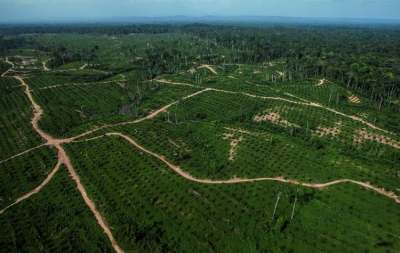The Kraft Heinz Company is the fifth-largest food and beverage company in the world. Many of its brands are household names in the UK, from the obvious Heinz, to HP, Daddies, Planters peanutsand Amoy. The company also uses the Weight Watchers brand under license.
Kraft Foods Group and Heinz merged in 2015, backed by Berkshire Hathaway and the Brazilian investment firm 3G Capital. Berkshire and 3G currently own 51% of Kraft Heinz and control five out of its eleven board seats, including one for Berkshire chairman Warren Buffett. Alex Behring, 3G’s managing partner, is Kraft Heinz’s chairman.
Indeed, it is the Berkshire Hathaway ownership that quite significantly affects Kraft Heinz’s Ethiscore; losing it marks under Climate Change, Pollution and Toxics, Factory Farming, and Habitats and Resources (Conflict Minerals) due to the practices of other companies within the Berkshire Hathaway group.
But the company loses plenty of other marks all on its own.
Environmental Impact
Kraft Heinz performs poorly at the most fundamental level of corporate social responsibility reporting. Its environmental report is a single page on its website with less than 350 words explaining in vague terms the company’s ‘commitment’ to reducing greenhouse gas emissions, energy consumption, solid landfill waste and water consumption and “continually [striving] to increase the use of renewable energy and find ways to make our company greener.”
The company did respond to our questionnaire, which we sent to complete our Baked Beans guide, stating that it had committed to reducing greenhouse gas emissions, energy, water and waste by 15% globally by 2020 (from a baseline of 2015). It also said that it was involved in the Carbon Disclosure Project and mentioned efforts to make packaging more sustainable.
Ethical Consumer thought this demonstrated that Kraft Heinz had a reasonable understanding of its main impacts. However, the statement only included one future quantified target and its progress against this target was not independently verified. We thought this level of reporting was woefully insufficient, especially for a company with a turnover of over £22 billion.
Workers’ Rights
The company’s concern for workers’ rights in its supply chain was equally undeveloped. The most we could find on the company’s website was a page on ‘Supplier Guiding Principles’ with stipulations against child labour, forced labour, physical abuse, discrimination, and requirements to respect freedom of association, local wage and working hours laws, and to provide safe working conditions. The page also outlined in general terms how Kraft Heinz would ensure compliance with its guiding principles.
The devil, as ever, is in the (lack of) detail. We found its policies to be indistinct in their references to child labour and discrimination particularly.
Its compliance stipulations were equally uninspiring. Compliance was to be self-certified by suppliers at Kraft Heinz’s request, not on an annual or another regular basis. Suppliers were also required to submit to monitoring by Kraft Heinz and third-party auditors and to on-site inspections “based upon reasonable notice.”
These four simple words reveal the emptiness of Kraft Heinz’s commitment to good supply chain management, since unannounced audits are crucial to the exposure of non-compliance, especially within the large and complex supply chains of global giants like Kraft Heinz.
This is a corporation with nearly 300 subsidiaries around the world, and its entire approach to protecting workers’ rights in its supply chain was covered in under 500 words.
According to the response we received from Kraft Heinz, the company’s threadbare CSR reporting was due to the fact that these procedures are still being brought together after the company merger in 2015, and a global CSR report is due to be published in the latter half of this year. Some might say that two years is an awfully long time to get one’s act together on such important issues.
Farm animal welfare
In February 2017, the new Business Benchmark on Farm Animal Welfare (BBFAW) report was released. This report, which is aimed at improving corporate reporting on farm animal welfare, assessed companies on the basis of their published information in five core areas: management commitment and policy; governance and management; leadership and innovation; performance reporting; and performance impact.
The report has been produced annually for the past five years and has steadily been increasing the number of companies it assesses. This time 99 companies were investigated and ranked from Tier 1 (indicating companies that have taken a leadership position) to Tier 6 (where animal welfare does not appear to be on the business agenda).
Kraft Heinz was ranked as Tier 6. This constitutes a marked step backwards for the company since its merger in 2015. That year, both HJ Heinz and Kraft Foods were ranked Tier 4 in the BBFAW report, indicating that each company was ‘making progress on implementation’. Two years later animal welfare appears to no longer be on the business agenda.
Anti-social finance
Our research also suggests that, when it comes to money, Kraft Heinz is interested in keeping it from the tax authorities and giving it to its executives.
In 2017, Kraft Heinz had two subsidiaries in the Cayman Islands, a jurisdiction considered by Ethical Consumer to be a tax haven. Both of these subsidiaries, Highview Atlantic Finance Company Limited and Jacobs Road Limited, were holding companies. These are high-risk company types for tax avoidance as they create no value in aid of themselves, rather they hold shares in other companies (hence the name).
Holding companies can also help large companies reduce their tax obligations in multiple jurisdictions. Finance companies, such as Highview Atlantic, can help companies to ensure that taxable and non-taxable financial transactions flow in the most advantageous directions.
Forgetting for a moment the enormous damage done by tax avoidance to public infrastructure and services (infrastructure and services without which corporations could not operate), the upside of these arrangements for Kraft Heinz is that company executives can draw fabulous salaries.
According to Kraft Heinz’s latest submission to the US Securities and Exchange Commission (SEC), three of the five named executive officers of the company received over $2 million in salaries, bonuses, stock awards and other compensation in the financial year 2016.
Of the other two, Bernardo Hees (CEO) received over $5,272,591 and George Zoghbi (Chief Operating Officer of US Commercial Business) received a whopping $12,135,578.
Palm Oil
Kraft Heinz has been a member of the Roundtable on Sustainable Palm Oil (RSPO) since 2007 and according to their latest Annual Communication on Progress (ACOP) 100% of the palm oil in the company’s global supply chain is certified as ‘sustainable’. The company disclosed volumes of all three types of palm oil (crude palm oil, palm kernel oil and palm oil derivatives) and gave a breakdown of the different types of certification used.
If Kraft Heinz had disclosed its suppliers or been involved in any additional positive initiatives around the palm oil industry, then it would have received our best rating for palm oil sourcing. As it is, it initially received a middle rating. This quickly dropped to worst after a report by Mighty Earth entitled ‘Palm Oil’s Black Box’ landed on Ethical Consumer’s desk.
According to this report, Kraft Heinz is a customer of Olam, a large and secretive Singapore-based palm oil trading company linked with deforestation in Southeast Asia and Africa. In 2015, only 1% of the total palm oil traded by Olam came from its own plantations. The remaining 99% came from third-party suppliers, which Olam has failed to name.



